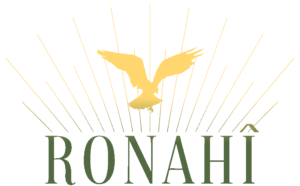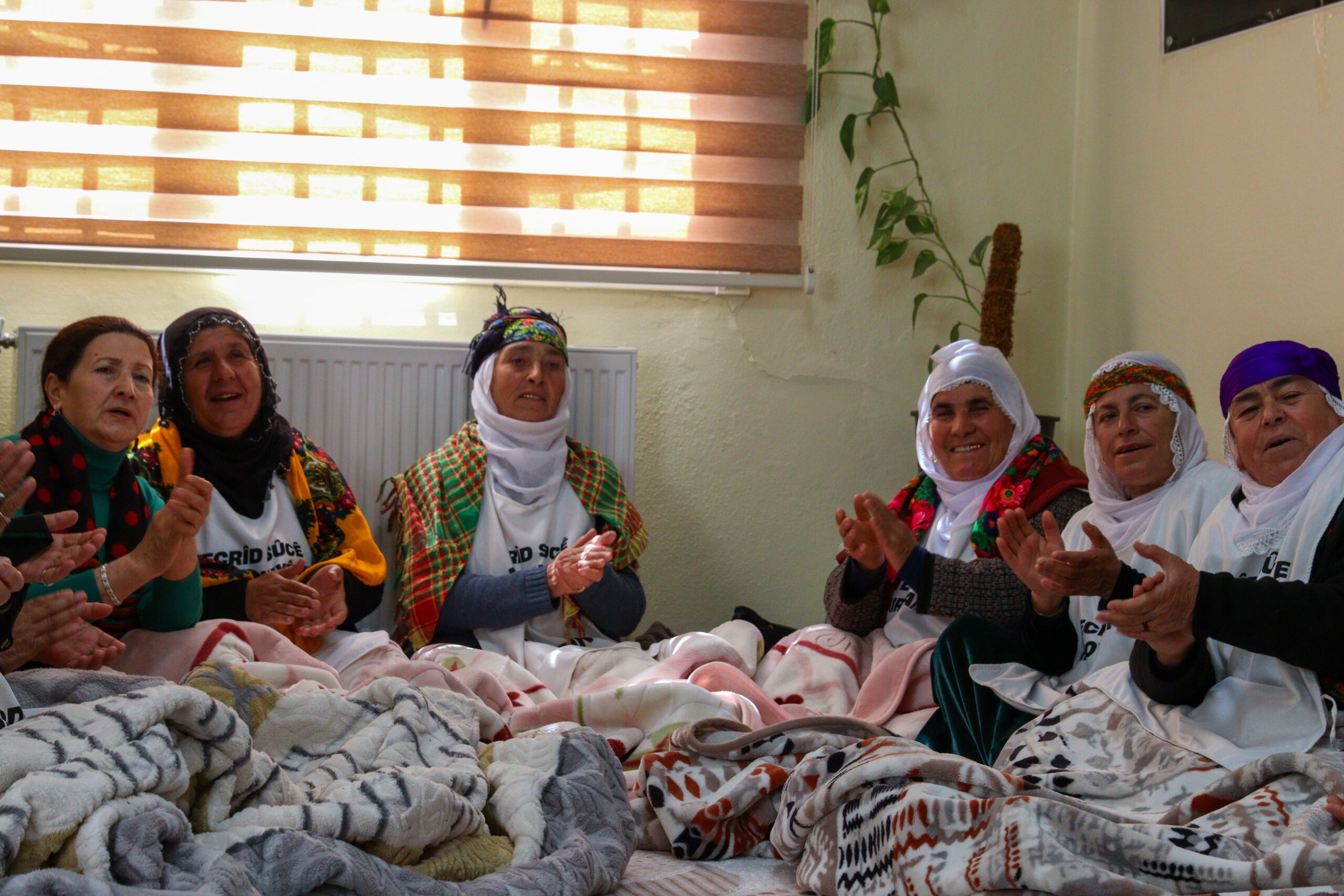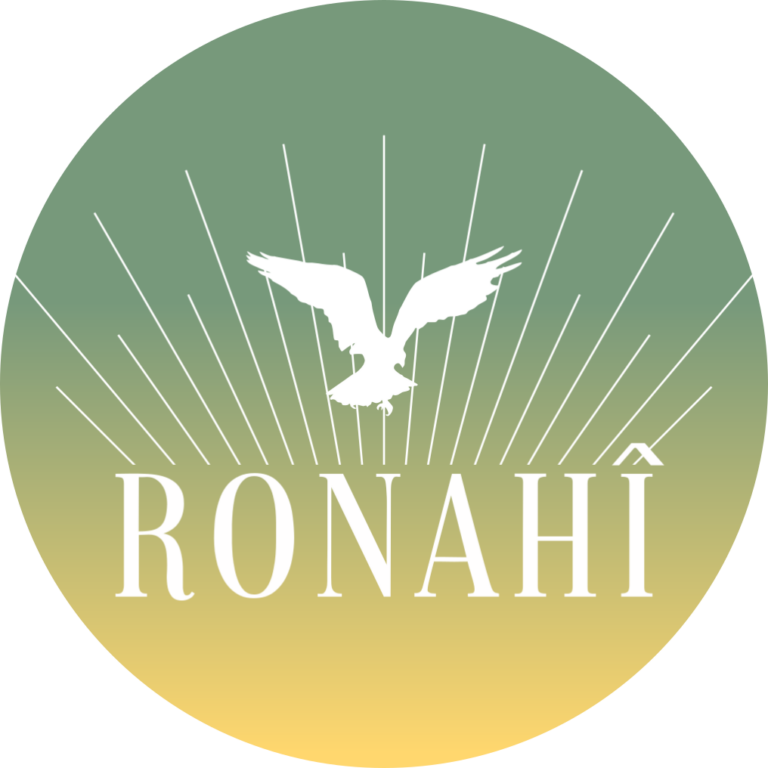As international delegation of young people, we visited the North Kurdistan region on the occasion of Newroz (new year’s celebration) and the local elections in Turkey, in which the Kurdish DEM party achieved great results. In this context, we observed the huge violations of rights by the Turkish regime towards Kurdish society, and at the same time the resistance and revolutionary spirit of the people fighting for freedom and justice.
One of the deeply significant meetings was with Peace Mothers – Justice Watch. The organization, founded in 1999, unites the mothers of political prisoners, imprisoned by the Turkish state for being active in resistance and organizing society according to democratic values. The mothers are not only involved by helping their sons and daughters in their daily needs but are also with them in the political resistance.
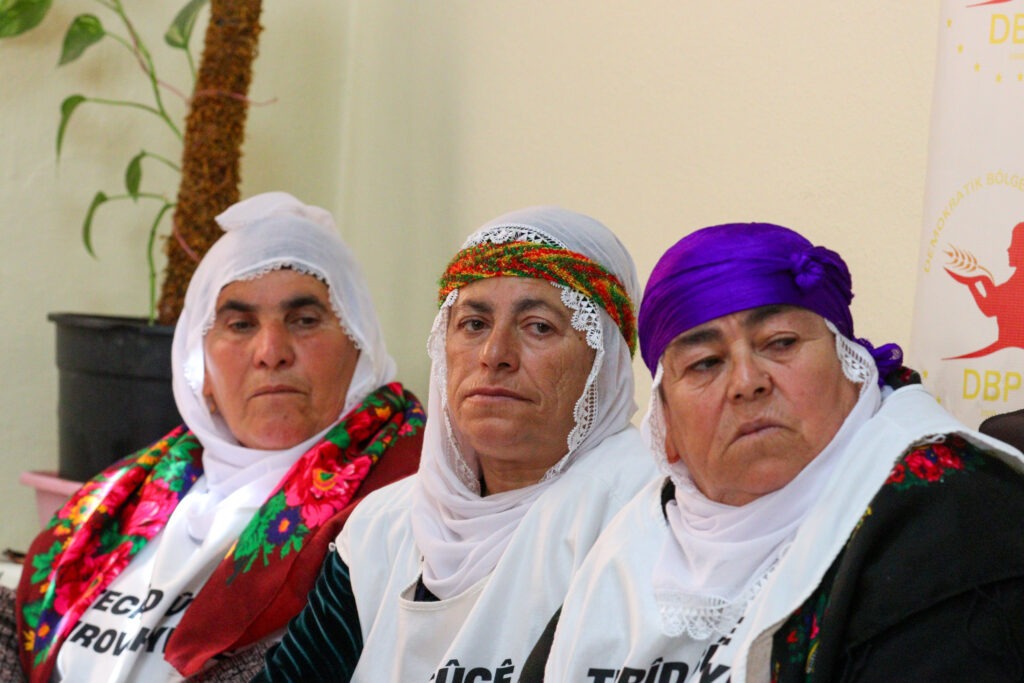
Hunger strike as an expression of political will
On 27th of November, prisoners started a rotating hunger strike, demanding the physical freedom of Abdullah Öcalan, the thought leader of the Kurdish liberation movement and chariman of the Kurdistan Worker’s Party (PKK), who has been in prison for over 25 years and in solitary confinement for three years.
In Turkey, there are thousands of political prisoners, accused of supporting the PKK, which is considered a terrorist organization by the Turkish state. In the prisons, conditions are harsh and dehumanizing. Prisoners are not allowed to write letters among themselves in the same prison to another department.
The hunger strikers are excluded from family visits, sports, excursions and leisure activities and are kept in solitary confinement without treatment. They do not receive adequate medical care or regular health checks, and are often prohibited from shopping in the prison store with their own money. If letters are written in Kurdish, they have to be translated by the prisoners and can take months to arrive, or not arrive at all. Prisoners on hunger strike are also not allowed to see a doctor. If they claim their right to medical care, they have to undergo lengthy and intensive searches to be seen by a doctor.
In women’s prisons, women with children (up to four years old) get no additional rights or treatment, the access to hygiene articles is very limited. Furthermore, the women are reporting on sexual abuse and harassment during searches.
Demand for freedom of Abdullah Öcalan
After the 4th of April, the prisoners announced a new phase oft the prison resistance. Seeing the freedom of Öcalan as their own freedom, they decided to live under the same conditions as him and the other three prisoners in Imrali. They are boycotting the court and are not meeting their relatives or doing phone calls.
They are demanding an end to the torture that solitary confinement represents and the immediate release of Öcalan.
Together with three other prisoners, he has been in maximum solitary confinement for three years on the prison-island of Imrali, a system devised by the Turkish fascist state to crush Kurdish resistance. So far, the Turkish government has shown no reaction on the hunger strikes. Even the European Union has ignored the issue, and thereby, in fact, ignored the wishes for peace and democracy of an entire people.
The CPT (Committee for the Prevention of Torture), who’s task it is to ensure, that humans and especially prisoners are not subjected to torture, did not bother to reveal the report of its visit to Imrali in 2022 until now.
During its last visit to prisons in Turkey, it did not visit Imrali at all, stating that they are attentive to the issue and would visit again in due course.
The struggle of the prisoners is going on and is a call to all the free people in the world. It is a call to resist for life itself, and not to give up in front of the attacks of the fascist enemy. They build their struggle on their mothers’ values, and with them fight for freedom.
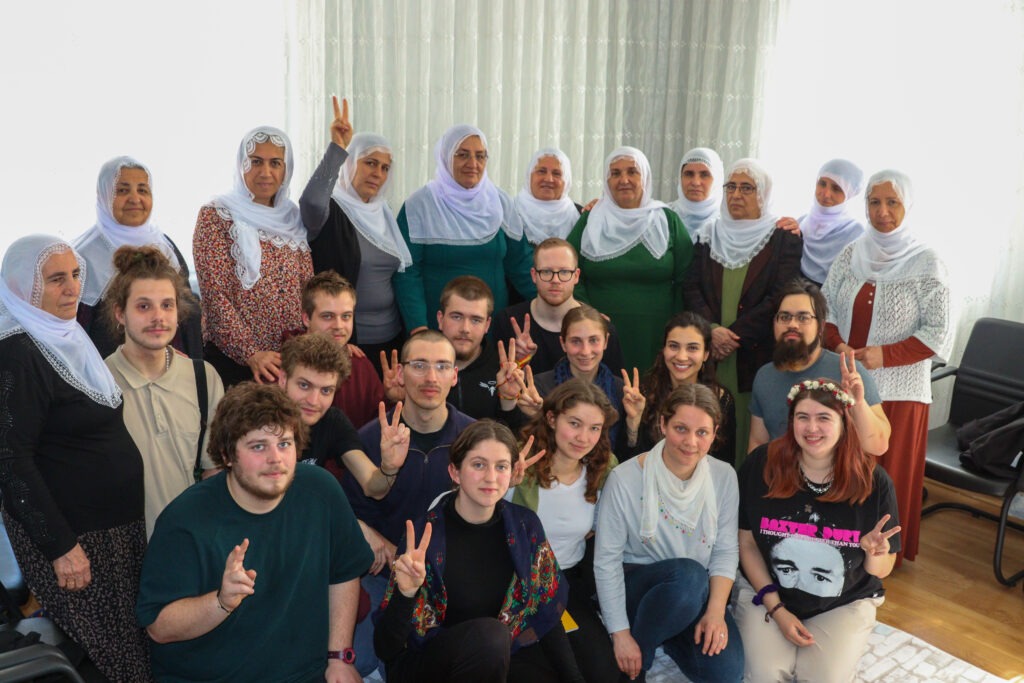
Mothers as symbol of peace
In Kurdish society, today as in the past, the mother plays a central role. The typical white veil that many of them wear is not only a feature of tradition, it is linked to the role of the mother.
In conflicts, in fact, the mother taking off the white veil and throwing it into the center of the conflict, in the midst of the people arguing and clashing, means that a boundary has been crossed and the conflict must be resolved peacefully.
We can see how the political role of the Peace Mothers goes so far beyond demands for freedom and rights, and becomes a guarantee of humanity.
This profound meaning, we saw clearly in the words of the Mothers, who desire a dignified peace, and fight for peace for all, for their children and also for the children of all other peoples. They are not based on hatred and revenge, but on love and acceptance. They go forward in this difficult and painful struggle and light the way for many others.
